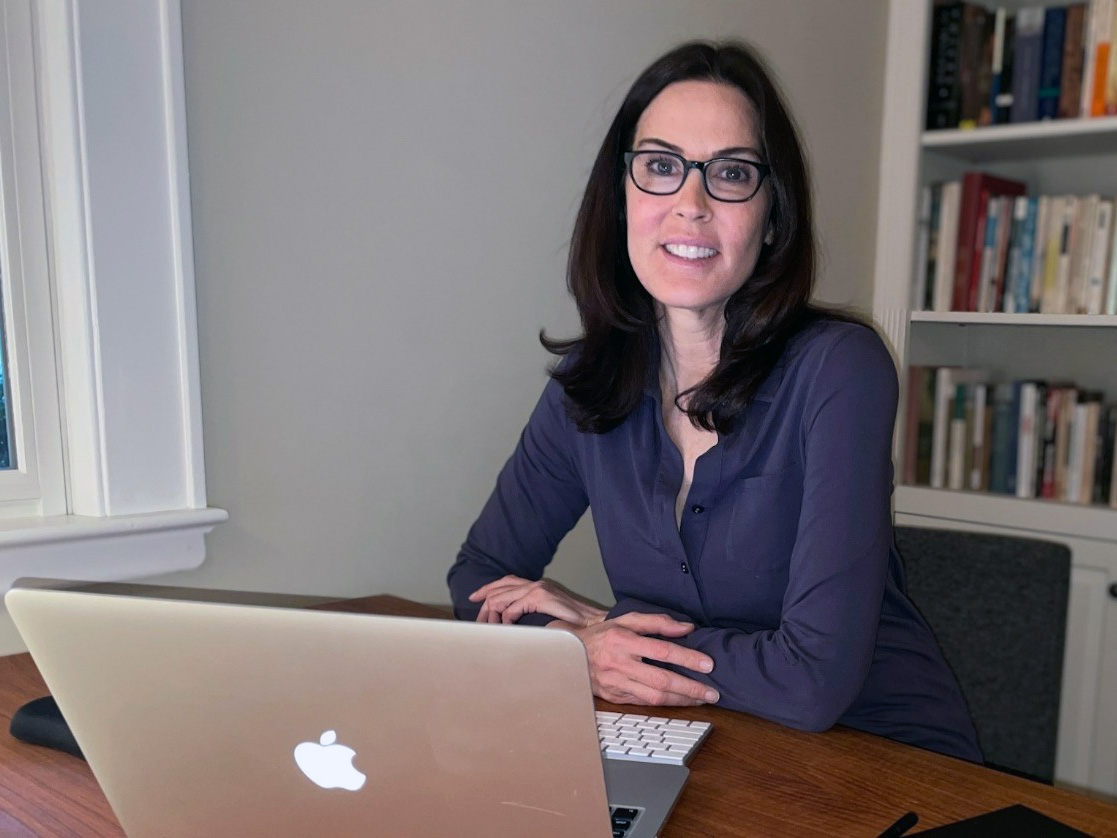
When she entered the workforce as a recent business graduate, HGSE Masters student Maureen Bunney had no idea she would create educational products for children, let alone the games and media that would reach today. 90% of American schools today.
“I was always a creative kid. I used to write stories and songs, play instruments, do leatherwork, and even sing in a band,” Bunney said. “But my mom said that even if you’re a creative person, you have to major in something practical. So I majored in business as an undergrad. But I missed creative work, so after college I went back to college to study children’s communications and media to learn how education can also entertain and achieve learning outcomes.”
Her first job was in Disney’s newly formed education division, where she worked on apps for preschoolers featuring Winnie the Pooh and The Lion Kingit’s Timon and Pumbaa. The film ties highlighted for Bunney the possibilities of bringing together education and entertainment.
“I loved my job. It allowed me to dream endlessly,” says Bunney.
After several years as Vice President of Educational Games and Product Development at Leapfrog Education, in 2010 Bunney’s dreams led her to found the creative agency Powerful game. With clients in the US and Europe including Disney, Nickelodeon, Zynga’s Farmville and Common Sense Media, Mighty Play’s team of subject matter experts and learning designers develop and produce learning games and other school products. Products range from mobile apps for language learning, digital safety and financial literacy to games featuring beloved cartoon characters like Mickey Mouse and Dora the Explorer.
The company began by designing for preschool and elementary school children, focusing on literacy, Bunney says. “The power of being a fluent reader propels children to remarkable success in any field of their choice – be it science, history, philosophy or business. Being a fluent reader is be free.”
With its list of major media clients, Mighty Play’s focus quickly grew to include products for kids in middle school through college. The company also designed a customized social-emotional learning (SEL) program for San Diego National University, including educational resources and professional development tools available online and free of charge.
Among his many significant projects, Bunney considers Mighty Play’s partnership with Common Sense Education Media on his digital passport as one of the most significant of his career. In response to adult concerns about children’s safety on the internet – especially as it has become more common for children to own mobile phones at a younger age – Digital Passport offers classroom games around citizenship digital. Exercises include teaching children the importance of creating secure passwords, managing their time and distraction on cell phones, understanding cyberbullying, and learning the consequences of sharing information such as images and thoughts online. Additionally, there is a main dashboard for teachers to review how children are interacting with the platform, including if, how, and when students complete game tasks. Digital Passport is part of Common Sense’s broader portfolio of digital citizenship products for kids, many of which were researched in conjunction with HGSE’s Project Zero team.
“So many people think edtech is a superpower, which it is, but it’s not the only superpower in the learning ecosystem.”
“What we did with Common Sense was groundbreaking,” Bunney says, noting that the product is used in nearly 90% of elementary schools in America. “There are many concerns about digital child safety. Common Sense has come to us with approximately 1,000 pages of printed program on child digital safety. We have translated and transformed this program into a series of educational games and a platform where children can experience social media, texting and email in different scenarios and role play.We taught them a new digital culture.
Despite her success, Bunney felt she had more to learn. So she applied to HGSE’s Learning Design, Innovation, and Technology (LDIT) program, not to become a subject matter expert, but to find out how people learn, create inclusive environments, and develop social-emotional skills in a constantly changing and digitizing world.
“I’ve worked in edtech for many years, and frankly, I wanted to expand my impact by helping more learners succeed,” says Bunney. “I wanted to understand the non-academic factors that play into success. How do people learn? How do they become expert learners? I also wanted to understand how to evaluate what we’re doing to make sure we’re helping and not hurting. Many of the strategies and characteristics that I have learned here at HGSE are strongly correlated to academic and life success. My goal is to support students in these strategies through educational games and learning technologies. These characteristics inherent skills can be honed and developed through educational games and are strongly correlated with success in school and in life.”
At HGSE, Bunney was exposed to many different viewpoints from her classmates and professors which she says enriched her understanding of how students from all backgrounds learn and interact with technology. And she continues to see the promise of technology to help solve emerging problems in education, she says, but not at the cost of the meaningful relationships built inside and outside the classroom.
“Technology is a great resource, but it’s no substitute for teachers, human factors, social services,” Bunney says. “Its greatest power is in its reach and engagement. The worlds of storytelling and fantasy ensure that learners are engaged in content and skills that are challenging for their level for their age. Technology must always respond to context, to the school and the learning community. As much as people think of edtech as a superpower, it is, but it’s not the only superpower in the learning ecosystem.”
After graduation, Bunney will return to Mighty Play in his previous role as CEO and Chief Product Officer.